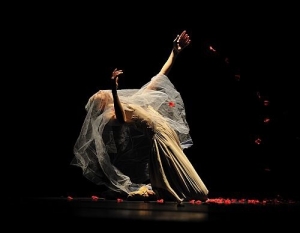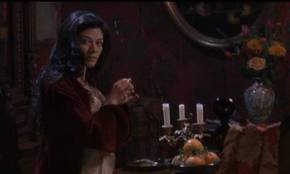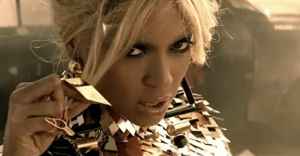Bertha Mason: A 21st Century Woman Trapped in 1847

Patriarchal images of women who dominate Victorian literature typify the often debated binary oppositions — “madwoman in the attic” and “angel of the house”. The “madwoman in the attic” represents a female who has an irrepressible level of rebellion towards patriarchal standards of women. In contrast, the angel of the house represents the desired patriarchal image imposed by men in society. Author, Charlotte Bronte, uses the latter archetype in her novel, Jane Eyre (1847), through character Bertha Mason. Bronte profiles Bertha as the quintessential “madwoman”, which, coincidentally equals the 21st century’s independent woman. In reality, society has always mimicked Bronte’s idea of the “madwoman in the attic” by forcing women into submissive roles. Thankfully, the idea of the submissive woman has changed tremendously since Bronte’s 19th century novel.
Clarifying the true identity of Bertha first involves understanding the patriarchal perspective of femininity in a 19th century Victorian society. Femininity simply involves the qualities of being female, but in the Victorian society it involves many more characteristics. Men of the Victorian era reduce women to a one-dimensional personality conditioned to embody angelic purity, inferiority, and supressing their genuine personalities. This patriarchal perspective of femininity requires a woman to have an upbringing that focuses on catering to their husbands wants and desires as requested. Victorian women purposely receive minimal education and aim for financial stability which they believe only occurs through marriage. The submissive woman signifies an “angel in the house” because her goal in life is to please her husband and rear their children. The husband’s commands help to keep his “angel’s” submissive. Women who either obey or rebel against patriarchal stereotypes that men choose makes them either the perfect wife or the perfect lunatic. This male conceived aesthetic ideal causes women to consider themselves as insignificant and lacking substance due to the suppressing of their true character. Bertha certainly rebels against these types of demands, but her reasons for doing so remain unknown.
Bronte never quite explains how Bertha delineates from the Victorian aesthetic ideal. In fact, classifiying her a “madwoman” seems random because readers only know that she is of Creole and English descent (Jane Eyre 766). With so many details of Bertha’s character remaining undeveloped, her actions qualify her, at the least, a woman scorned, and easily equates to the Victorian male’s defiant woman. Victorian men, like most 21st century men, prefer submissive women with angelic qualities. If given the choice, they would choose the woman who willingly accepts the role of the docile homemaker over an independent woman in control. According to Bronte, Bertha reneges on the role of ‘Susie Homemaker’ which leads to the demise of her existence. Some researchers consider Bertha a raging lunatic who deserves exile from society due to her physical features alone. Does Bertha’s persona align with that of a lunatic or does she rebel against the patriarchal femininity that men need her to show? Bertha’s description, which parallels the lives of women pre-1970, is that of a shapely woman with her own ideas, and desires of freedom to exist in society as she so pleases. The difference is that women of the pre-1970 era work menial jobs and suffer many inequalities. In order for women to succeed in society, they need to fit the profile of a thin-framed, voiceless, homemaker, never derailing the male’s superiority. Sounds like everything Bertha is not.

Before understanding why Bertha’s husband considers her a madwoman, her perspective needs evaluation. Throughout the novel, Bronte does not include Bertha’s point-of-view of her circumstances. It takes a different author to divulge Bertha’s perspective of her husband and his reasoning. Author, Jean Rhys, discloses in Wide Sargasso Sea (1966), the missing history from Bertha’s life and provides the platform for Bertha to give her opinion. In part three of Rhys’ novel, Bertha recounts the incident she believes causes Rochester to alienate her. Apparently, Rochester discovers Bertha’s intimate relationship with someone else. This infidelity causes Rochester to consider Bertha “intemperate and unchaste” because intimacy outside of marriage is adultery. Ninety-percent of the 21st century’s society would be locked away by Rochester’s reasoning. The incident enrages Rochester to lock Bertha away in his attic forever. Nowadays, the paradox of Rochester’s actions is a woman wanting to lock her husband in the attic.
Bertha’s existence is so averse to 19th century standards that even her husband changes her name to depict her attitude. She goes from Antoinette to Bertha, which seems the thing to do for a “madwoman.” In comparison to the 21st century, Bertha refers to a title similar to the current use of garden tool, (you can fill in the blank). Her husband feels he married into a family of idiots and maniacs because the reason for marrying Bertha centers around money — sounds familiar. Rochester’s father did what most people do today, consider marriage when trying to secure finances instead of love. The truth is, Bertha’s mother does not actually suffer from madness, but heartbreak due to the death of her young son, Pierre, who dies in a fire. Bertha’s strong-willed personality and need for independence does not align with that of a heartbroken mother with a flirtatious personality. The reason Bertha changes from Antoinette the “charming partner — pure, wise, [and] modest…” to a “madwoman” her husband hides from society due to restraints imposed upon her. Rochester hides Bertha from society because he does not want to ruin his family’s namesake by revealing he married beneath his European family’s status. Marrying below one’s status is so common today, that the strongholds of society in the 19th century seem unfathomable.

Could Bertha just run away as if she saw the 21st century waiting for her under a rainbow? Sure, except for the fact that if she were to abandon her marriage she would probably die from starvation because the marital wealth belongs to the husband. A Destiny’s Child song, “Independent Women”, comes to mind at this moment — (thank goodness for an evolving society). Surely, Bertha wants to shout the lyrics of this song, but unfortunately, she is ahead of her time. Patriarchal standards in Victorian society does not allow women the freedom that women experience in the 21st century. Once a woman marries, she becomes subjugate to the “angel in the house” theory. Although, she grew up in a lifestyle that consists of the pampering and freedom of a 21st century woman, her marrying a European in Victorian times causes her demise.
Concerning Bertha’s features, conflicting information exists. Bronte’s story describes someone of African or Hispanic descent. Other analysis consider Bertha a White-Caribbean. Besides being deemed a “madwoman,” Bertha has “blackened inflation of the lineaments” and “fiery eyes” (Jane Eyre 743-44). Bertha’s description simply mirrors her anger and proposed alcoholism as a result of imprisonment in a room that does not contain any resemblance of normalcy. Locked away in captivity for so long, she also realizes that she does not resemble her old self. Her captivity and desire for freedom causes an attack on someone with a knife because they will not help her escape to freedom. Suddenly, Bertha’s description makes sense — she exemplifies the quintessential 21st century independent woman. Try locking away a 21st century woman, and she too, will adopt the angry prisoner mentality.
Bertha is a 21st century woman trapped in a 1900 Victorian society. She is independent because she chooses to rebel against the male standards of femininity by reserving her right to choose what she deems right for her life. The men in her stories label her negatively because she refuses to submit to their “angel in the house mentality.” Bertha proves, in her own words, that the “madwoman” theory does not portray her accurately. Her actions seem beyond that of an “angel” because she refuses to accept a lifestyle not conducive to her beliefs. Author, Wilson Harris, believes Bertha’s captivity “is no less than a hidden surrender of life…” (Rhys 192).

Whenever a female character in literature depicts this type of behavior she becomes society’s outcast. For example, Lucy Westerna, in Bram Stoker’s Dracula (1897), has beauty, wealth and her choice of any man she desires. Her ability to outwardly desire whatever she wants in life causes men to disassociate her from their patriarchal design. They consider her monstrous because her physical beauty, not meek personality, attracts men. Her flirtatiousness also parallels the rebellious nature of Bertha, except, instead of a man locking Lucy away in an attic, a vampire locks away her mind. “Angel in the house” versus “madwoman in the attic” define passe‘ tactics men use to conform women to their patriarchal standards. As long as they could have a “young girl…with clear eyes…[who] submit[s]” they not only keep control of society, but also what defines femininity (Bronte 317, 771). Bertha’s behavior culminates from experiencing life in a prison without bars after many years of a wealthy lifestyle. She does not understand nor have the wherewithal to comply with the imprisonment inflicted upon her. Bertha stands as a crusader for the 21st century’s independent woman.
Works Cited
Bronte, Charlotte, Jane Eyre (Apple iBook. Bookbyte Digital. 21 October, 1847).
Rhys, Jean, Wide Sargasso Sea ( Norton Critical Edition. New York: W.W. Norton & Company, Inc., 1966).
Stoker, Bram, Dracula (New York: Oxford University Press, 1897).
What do you think? Leave a comment.











Fantastic article! I love Jane Eyre, and I’ve always loved that for once, a romance novel features a somewhat plain protagonist. However, your comments here are definitely making me rethink how the whole plot works.
Thanks for reading! I’m glad you enjoyed it.
Even though I didn’t read Jane Eyre, I thoroughly enjoyed this article! Gotta love woman empowerment!
Really?! LoL, I fell in love with with the story after reading Jane Austen. I love Bildungsroman novels.
To be honest, at my second attempt (I failed at my 1st attempt) reading Jane I didn’t expect to enjoy it as much as I did. I read this book only in the middle of the night merely in the hope to “cure” my insomnia.
I am a latecomer to Jane Eyre as well and I am now wondering what the hell took me so long. This book is amazing from start to finish and I found myself thinking about it whenever I couldn’t get to it to carry on reading.
Good that you’ve read it before seeing the movie version. The movie does not capture the true awkwardness of Jane and totally goes overboard with Bertha.
interesting post about Bertha!
Thanks:)
Bertha Mason is definitely the most interesting character in Jane Eyre. Wide Sargasso Sea was a fantastic “prequel”, shall we say.
Whilst Victorian men undoubtedly desired women to be the “angels of the house”, I think it’s a little harsh to throw “most 21st century men” into the same category (that is, assuming we’re talking about Western-cultured men?).
Bertha was probably one of the best early representations for second-wave feminism around the 1960s and 1970s, but I feel now that we are experiencing the third-wave, where women can choose if they want to be “Susie homemaker” or not (because there’s actually nothing wrong with that, if it’s what you desire), Bertha may be a bit out-dated.
Having said that, there are of course some silly men out there who expect women to be the “angel” and not the “madwoman”.
Sorry for the rant! Loved the article!
Sonia, You’re right that today women can choose and not all men are like men from sixty years ago. Often times, women of today fail to see that they have a choice. Bertha is not outdated for me,(Read my comment below) but her character caused me to open up my mind to change. To me, that is lovely literature.
Thanks for reading! Your opinion was very insightful, I might add;)
I also felt there could have been more to Bertha Mason than “mad woman” so I really appreciate your reading of her :). What are your interpretations of (if I remember it has been a long time since I’ve read Jane Eyre) her burning the house down at the end of the novel?
I interpreted her actions as a beautiful accident, LoL. It could have been a multitude of things, anger, insanity, delirium, revenge…etc. After reading Wide Sargasso Sea, I honestly don’t believe that she was mentally unstable, but driven beyond her breaking point.
Years ago, when I first read “Jane Eyre”, (I was not a young girl then) Bertha opened my eyes in regards to the 21st century life I was living. Bertha I believed, was a reflection of someone I wanted to be. My background was filled with patriarchal rule. As time passed, I began to be more like Bertha. As I started to change out of that “angels of the house” role I was enmeshed in, my circle of friends that were also caught up in their submissive housewife rolls considered me a “madwoman”. “Jane Eyre” along with “The Awakening” by Kate Chopin, opened my eyes as a grown woman and catapulted me into serious change. That is the beauty of literature for me. Maria, Thank you for sharing.
And thank you for reading!
Wow, thank you for this article! I read Jane Eyre in high school, but didn’t give much weight to Bertha. I think its past time for a re-read. I also plan to pick up Wide Sargasso Sea. The issues you mention are very valid, in Victorian society and I would say in today’s society as well. Women are seen in a different light if they are the ones who go outside the marriage.
Glad I was able to provide a different outlook for you. Thanks for reading, and Wide Sargasso Sea is a very interesting read.
Great analysis of Bertha from a 21st century/feminist perspective. If Bertha represents Rochester’s attempt to lock Bertha way for failing to be “angel of the house” (in fact, she almost transforms into a demonic figure, biting the neck of her own brother, George Mason, and haunting the rooms at night in fire and darkness), is Rochester’s first attempt to marry Jane an attempt to transform Jane into that “angel of the house”? It’s almost as though he is trying to merge their two identities, by marrying them at the same time– he cannot completely let go of his first wife, or “send her away some place,” as it would be acknowledging his “failure,” vicariously experienced through her “failure” to be the angel of the house, but it is interesting that Jane also refuses to simply submit to him. She leaves rather than live a life catering to his wishes of being, essentially, his mistress. However, she nonetheless returns to look after him after his accident, once his wife has gone– now that Bertha has vanished and there are no double identities to merge, does Jane represent the new “angel of the house”? Or has she transcended that role by coming back to Rochester of her own free will? I don’t know. But I very much enjoyed your interpretation and analysis of Bertha from this perspective, and the point about vampires exerting a similar dominance of will over women (by extension, what does this suggest about Edward Cullen, who wants to preserve his wife in her more submissive human form before she “breaks free” and becomes a vampire? I’d like to note that I don’t support Twilight in any way, but I do enjoy finding ways it subverts and deconstructs itself).
You totally got what I attempted to convey. Yes, I believe that Rochester’s motive was to merge the two identities between Bertha and Jane to get his perfect angel. As we all know, life never goes according to our plans, LoL. Also, you must remember that His marrying Bertha was also a financial decision. Rochester’s father married him off for financial reasons, not love. Bertha was a bad memory of Rochester’s father and his poor business dealings. For the most part, His father’s financial instability caused Rochester’s bitterness and anger towards Bertha.
Hi Maria! I love this article and need to reference it in my major work for Year 12 and was hoping you could tell me/email me your full name? Thank you so much!
This is a well-thought out analysis of Bertha, who can certainly be a very overlooked character in many initial readings of “Jane Eyre.” I appreciated how you made reference to the ambiguity of Bertha’s race, and it made me think about the potential consequences of Bronte’s depiction of Bertha as a Creole on the “madwoman” characterization. I feel there definitely are postcolonial angles that can be considered, especially in relation to “Wide Sargasso Sea” as you mentioned. I also think it would be interesting to view Bertha as a “madwoman” through the lens of Victorian medicine, especially attitudes towards mental illness. Personally, I believe there is still the argument to be made that in the character of Bertha, Bronte depicts her society’s medical ignorance towards individuals (especially women) who had mental illnesses but did not receive proper treatment for their symptoms. Finally, I wonder what you think about how this depiction of Bertha and the dichotomy of angel of the house vs. madwoman in the attic affects the character of Jane. Jane of course begins her life being likewise labeled as mentally unstable, and yet at the novel’s conclusion she has (happily and of her own free will) adopted the angel of the house role by marrying Rochester and rearing a child. Is there a healthy medium in-between the two extremes in terms of women’s roles, both in the Victorian age and in the 21st-century? These are just some of my thoughts and questions, but thank you for the thought-provoking article!
you can’t take as an example the book ” wide sargasso sea” because it’s not what Charlotte had in her mind. that’s not her point. The Jean’s characters aren’t like Charlotte’s characters. “wide sargasso sea” is a good book with a good literary quality, but not a good prequel. I don’t think that Rochester looked Bertha because she was a “independent woman”, Jane was a Independent woman too and he didn’t want to lock her. In Charlotte’s version Bertha is an alcoholic, wild, promiscuous and a bad woman. She is not a victim like in “wide sargasso sea”. Her end was a poetic justice. I’m a Jane Eyre purist. I don’t like another version with characters totally differents. Of course, that’s my opinion. Good article and sorry for my bad english.
I am definitely referencing this in my essay. How do I cite this???
Seems you’ve never actually read “Jane Eyre”. You’ve mangled a description of Antoinette Cosway from Rhys’s novel “Wide Sargasso Sea” with virtually nothing from Bronte’s novel and made some kind of weird third wave feminist mash up that’s right off any possible reference to either novel! Wow!
While I must say this is an interesting angle to view Bertha Mason, you must also consider other aspects of the book, such as Bertha’s violence towards her brother and murder attempt towards her husband. You are grossly exaggerating the possibility of her just being vulgar and vivacious, and simply ignoring the fact, that she truly is mentally insane. It is too bad Charlotte does not describe the beginnings of the mental illness, but she correctly points out that some severe mental issues are often hereditary. We also musn’t forget that the sense of duty – at least in the literature of that time – is one of the core values of those people. Rochester truly tried everything, and did not banish his wife even after attempt for his life. The fact that she is a Creole, is only brushed in the book, and most of the time Jane is convinced that the mad woman is actually Grace, an English woman. Let’s not also forget other characters in the book, such as Jane’s aunt, cousin and the principal of the school, who are all narcissistic sociopaths, maybe even psychopaths. I agree with the previous commenter, that Wide Sargasso Sea has nothing to do with Bronte’s book. Conclusion: it is a dangerous thing to brush off severe mental illness described in a book as a mere misunderstood woman of color.
I loved Jane Eyre, but I also loved Wide Sargasso Sea because I longed to understand Bertha. She felt so unexplained, a convenient plot point. I really enjoyed reading your point of view on this!!
Loved your essay! I was hoping to use you as a critic in a paper I’m writing, I want to give full credit to you but I’m wondering as to how I can refer to you in my paper?
You can cite this article and the author via their alias here. In this case, it is: “Maria the Writer”